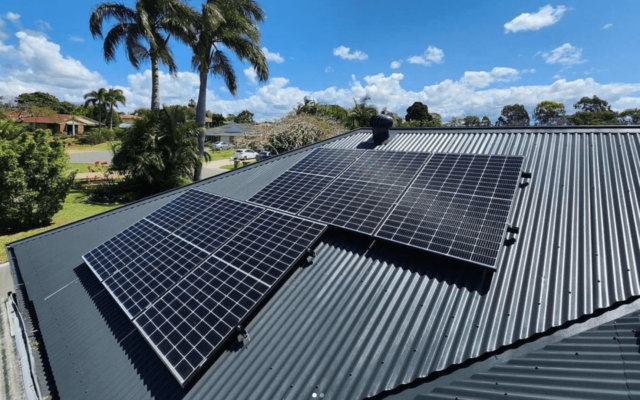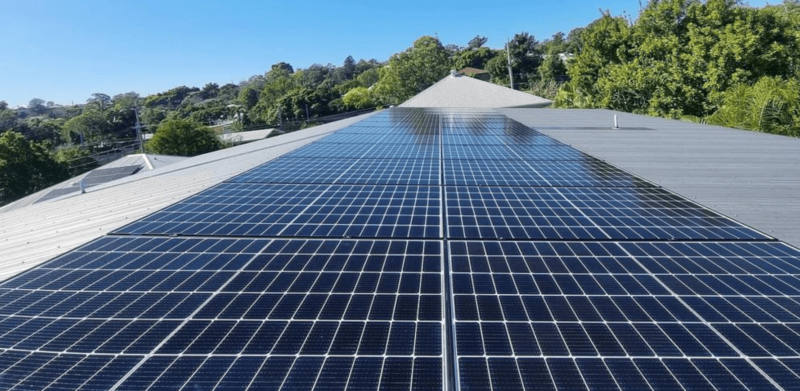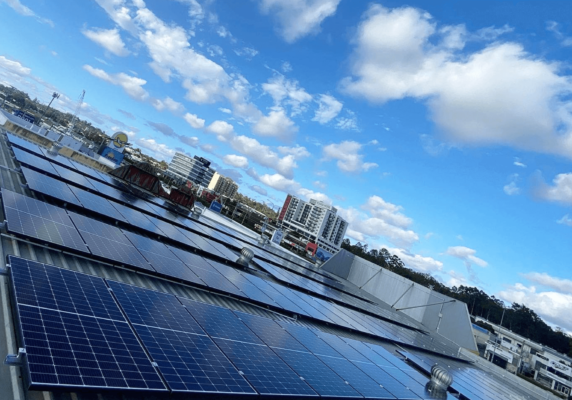Solar Panel efficiency is calculated by the amount of sunlight converted to electricity. Due to many advancements in photovoltaic technology, the efficiency of solar panels has increased from 15% to 20% over the past few years.
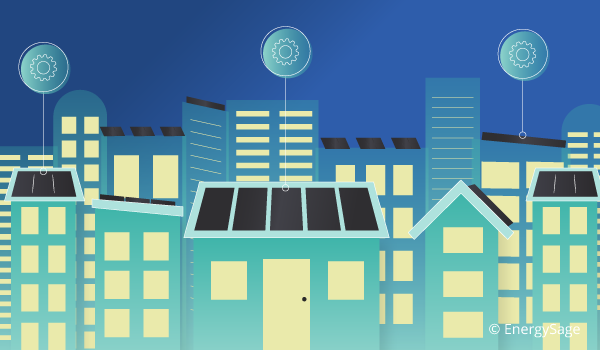
Two primary factors gauge Solar Panel efficiency: photovoltaic cell efficiency and total panel efficiency. Enlarging the panel size can elevate solar panel efficiency. The augmented size results in a larger surface area for sunlight capture, thereby generating more electricity.
Factors to Determine the Solar Panel Efficiency
Three key material-related factors affect the efficiency and price of your solar panels, making them crucial considerations when selecting the right solar panel for you.
What are Efficient Solar Panel Materials?
Manufacturers have utilized a variety of materials in creating Solar Panels. The most popular ones are:
- Monocrystalline
- Polycrystalline
- Thin Film (Silicon Solar Panels)
Monocrystalline is the best material, averaging an efficiency rate of 20%. The same applies to the panels consisting of p-type (Positive) and n-type(Negative) silicon cells.
Solar Panels Efficiency vs. Reflectivity
When sunlight strikes the panels, a portion of light might reflect. This unabsorbed light is neither harnessed nor converted into electricity, resulting in energy loss and reduced cell efficiency. The greater the reflection from solar panels, the lower their efficiency.
The reasoning behind utilizing glass in the construction of most solar panels – is to maximize light absorption and minimize reflection. Additionally, this explains why black solar panels typically boast significantly higher efficiency rates.
The Wiring and Busbar of the Solar Panel
The number of busbars and solar wiring highly affect the efficiency of a solar system. Coupled with a higher count of busbars is beneficial as it converts more energy with reduced tension. Explicitly, sunlight then travels to the inverter, facilitated by wiring. Thus, the wiring’s quality is crucial to ensure light can travel with minimal resistance.
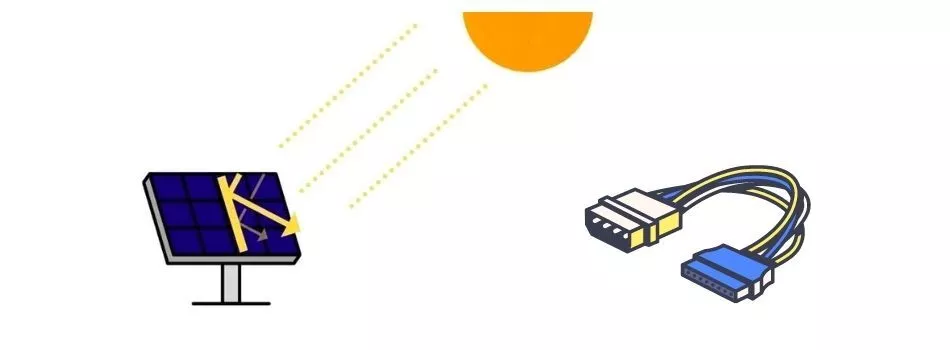
Other factors that affect solar panel efficiency:
- Shading of the Solar Panels
- Temperature derating and degradation
- Solar Panel facing
- Solar inverter efficiency
- Long cable runs
- Design of Solar System
- Quality of your Solar Panel installation
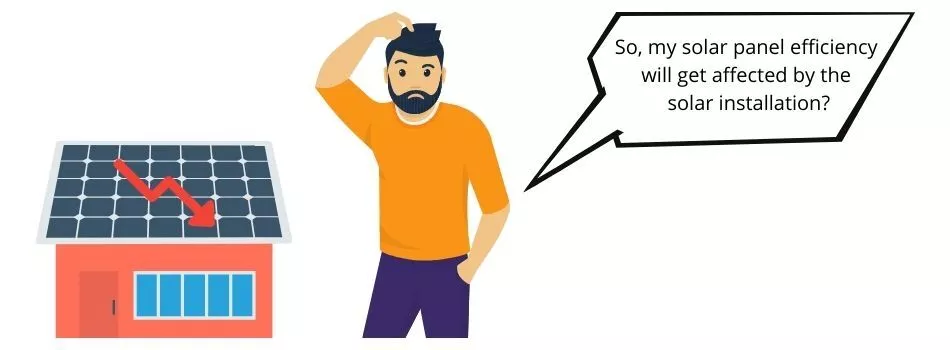
Reasons for Low Solar Panel Efficiency
Numerous factors can lead to low efficiency. We’ll address the top two reasons here:
Thermal Heat
Solar Panels achieve their highest efficiency before generating heat. They operate within a range of 60%-85% efficiency, beyond which they start producing heat and potential damage, limiting the energy conversion capacity.
Solar Panels are fixed
Another consideration is the fixed orientation of solar panels, which can hinder optimal sunlight exposure. This limitation reduces conversion efficiency due to insufficient sunlight reaching the panels.
Final Verdict
Above all, assessing solar panel efficiency is intricate due to differing opinions. Efficiency depends on panel size and homeowner requirements. Consult our solar installers and get a free quote now!

